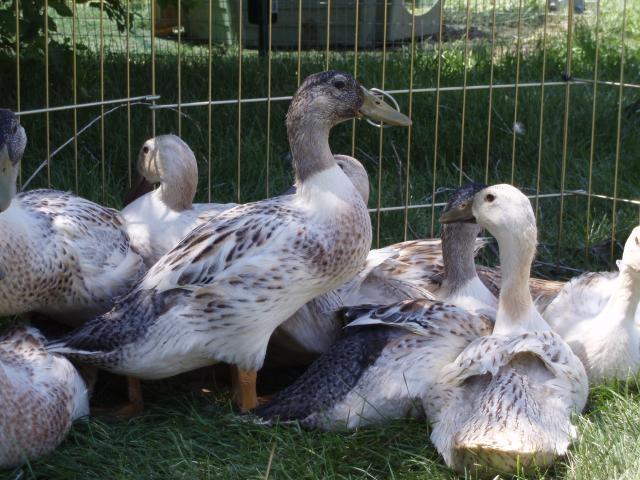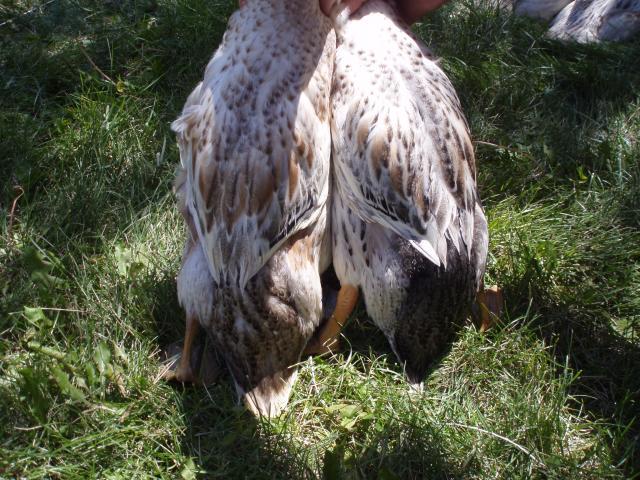- Mar 21, 2009
- 2,229
- 52
- 349
Okay, I finally had a digital camera work long enough to take some pics of the WH while we had them out to clean their run. LOL, hopefully, this works since I am not sure how to paste photos...
Here is one of the group...

Here is one of the Silver drakes...

Two of the lighter colored Gold ducks...

Two light Gold ducks in foreground, one of the darker Gold hooded ducks in background...

Side by side, Gold drake and Silver Drake (silver on right)...

Here is one of the group...

Here is one of the Silver drakes...

Two of the lighter colored Gold ducks...

Two light Gold ducks in foreground, one of the darker Gold hooded ducks in background...

Side by side, Gold drake and Silver Drake (silver on right)...


